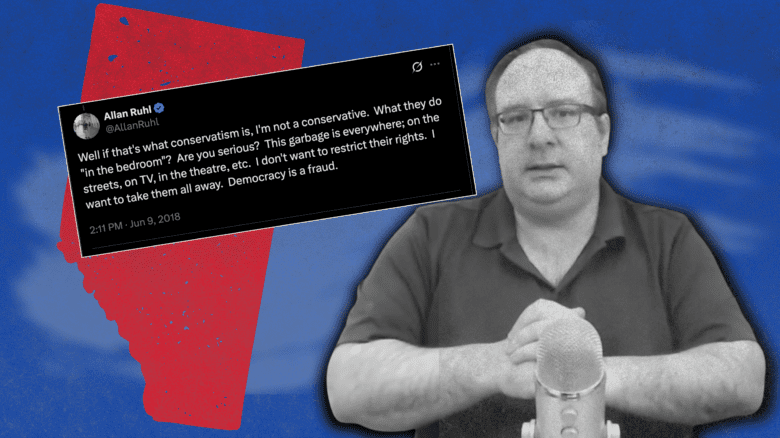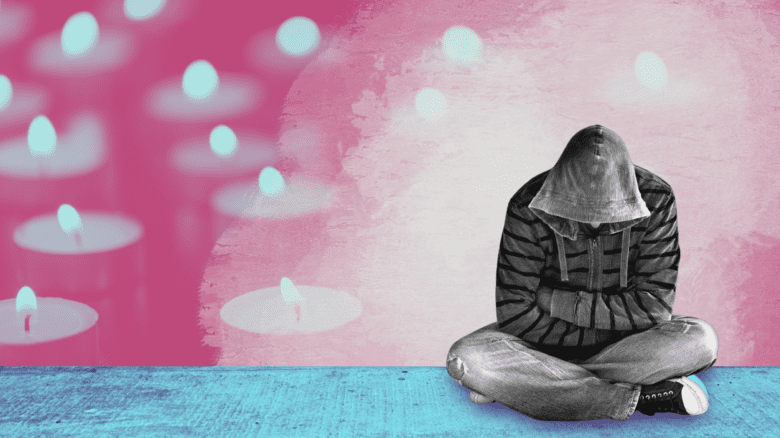A trio of new bills set to limit what students can be taught about LGBTQ2S+ issues in school and expand Florida’s notorious “Don’t Say Gay” bill were pre-filed ahead of Florida legislature’s 2023 session, which began this week.
The state’s current “Don’t Say Gay bill”—formally known as the Parental Rights in Education bill—forbids teaching about LGBTQ2S+ topics to students up to the third grade, and bans instruction “that is not age-appropriate or developmentally appropriate for students in accordance with state standards.” Florida activists have pointed out that this vague wording could be used to broadly restrict learning and extracurricular activities like GSAs, depending on how it is interpreted by administrators.
House Bill 1223 would extend the “Don’t Say Gay” restrictions to charter schools and private pre-kindergarten programs, and raise the blanket ban on LGBTQ2S+ content to ninth grade. It would also require that “personal titles and pronouns” from kindergarten through to 12th grade match their sex assigned at birth, and write into schoolwide policy that “a person’s sex is an immutable trait and that it is false to ascribe to a person a pronoun that does not correspond to such person’s sex.”
Meanwhile, House Bill 1069 would restrict reproductive health teaching to sixth grade and up, and teach that sex is “determined by reproductive function at birth … [and] reproductive roles are binary, stable and unchangeable.”
The third, Senate Bill 1320, would restrict reproductive health education further, to only ninth grade and above. In an email to NBC News, its sponsor, state Sen. Clay Yarborough said, “Every family is different, and children mature at different rates. The place for instruction on sexual orientation and gender identity is in the home, guided by the parents, if they deem appropriate.”
Queer and trans advocates in the state have widely criticized the proposals. “Don’t Say LGBTQ2S+ policies have already resulted in sweeping censorship, book banning, rainbow Safe Space stickers being peeled from classroom windows, districts refusing to recognize LGBT History Month, and LGBTQ2S+ families preparing to leave the state altogether,” said Jon Harris Maurer, public policy director of local advocacy organization Equality Florida, in a news release. “This legislation is about a fake moral panic, cooked up by Governor DeSantis to demonize LGBTQ people for his own political career.”
Since Florida Gov. Ron DeSantis signed the “Don’t Say Gay” bill into law last March, the state board of education has enacted rules that notify parents if school districts allow trans kids to use gender-congruent washrooms, and threaten teachers who disobey the “Don’t Say Gay” law with having their licence revoked.
Michael Woods, an out gay special education teacher in Florida, told NBC that the bills restricting LGBTQ2S+ content in classrooms do nothing to help problems that teachers in the state face.
“I don’t understand why banning pronouns is more important than hiring teachers, getting cost-effective insurance, making sure people can buy houses,” Woods said.
In addition, the vague wording of content being “age-appropriate” makes it difficult to know what discussions of gender or sexuality are ever appropriate, or whether extracurricular actions like creating a GSA would run afoul of the restrictions.
“There’s a lack of feedback from the state; I can’t put myself out there,” he said. “I’m mad at myself, because I feel like I’ve let the kids down.”
The effects of the “Don’t Say Gay” bill and similar Florida bills have extended far beyond schools in the state. Research from the Human Rights Campaign found the legislation portended a 406 percent increase in anti-LGBTQ2S+ “grooming” rhetoric online, while PEN America analysis counted 26 similar or more restrictive bills in 14 states in the current legislative session alone.
The 2023 legislative session in Florida will see a number of other bills that continue the right-wing culture war. Sen. Yarborough has also proposed legislation that would legalize parental kidnapping of a trans child, or give the state agency to take custody of a child, to prevent them from accessing gender-affirming healthcare. House Bill 999 would prevent state universities from teaching about gender studies or having diversity, equity and inclusion programs. And Senate Bill 300 would ban abortions after six weeks except in cases of rape or incest.
According to the ACLU’s anti-LGBTQ2S+ bills tracker, Florida has filed 11 anti-LGBTQ2S+ bills so far this year. Given that Republicans hold a 49-seat majority in the state’s lower house, a 16-seat majority in the state senate and the governorship, more anti-LGBTQ2S+ legislation seems likely to be signed into law this year.


 Why you can trust Xtra
Why you can trust Xtra


